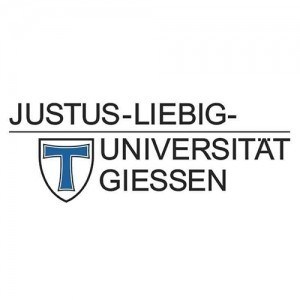Photos of university / #stockholmuniversity
The Master's Programme in Globalization, Environment and Social Change at Stockholm University is an interdisciplinary programme designed for students interested in understanding the complex interactions between global environmental issues, social transformations, and economic developments. The programme aims to provide students with comprehensive knowledge of how globalization influences environmental sustainability and social justice, and how societies can adapt to and mitigate these challenges. Throughout the programme, students will explore a wide range of topics including climate change, resource management, urbanization, environmental policy, global governance, and social inequalities. The curriculum combines theoretical frameworks with practical analysis, encouraging students to critically evaluate current global issues and develop innovative solutions. Students have the opportunity to engage in empirical research, participate in international seminars, and collaborate with academics and professionals from various fields. The programme also emphasizes the importance of intercultural understanding and communication skills necessary for working in global contexts. The international environment at Stockholm University allows for a diverse student body, fostering a rich exchange of perspectives and ideas. Graduates of the programme will be well-equipped to pursue careers in international organizations, NGOs, government agencies, research institutions, or further academic study. Overall, the programme prepares students to become knowledgeable and responsible professionals capable of engaging with the pressing environmental and societal challenges of our time, contributing to sustainable development and social change worldwide.
The Master's Programme in Globalization, Environment and Social Change at Stockholm University offers a comprehensive interdisciplinary education designed to explore the complex interactions between global economic, social, and environmental processes. This programme provides students with in-depth knowledge of how globalization influences environmental sustainability and social development across different regions of the world. Through a combination of theoretical frameworks and empirical analysis, students will examine the causes and effects of global environmental challenges such as climate change, biodiversity loss, resource depletion, and pollution, alongside social issues including inequality, migration, and cultural change.
The curriculum integrates perspectives from environmental science, political science, human geography, and sociology to foster a nuanced understanding of the interconnectedness of social and environmental transformations. Courses cover topics such as global environmental governance, sustainable development, social movements, global economic systems, and policy analysis. Students will also gain practical skills in qualitative and quantitative research methods, enabling them to critically assess policy options and develop innovative solutions to global challenges.
The programme emphasizes active learning through case studies, group projects, and fieldwork, encouraging students to engage with real-world issues and stakeholders. Throughout the programme, students will explore case studies from different parts of the world, fostering a global perspective and intercultural competence. The programme also offers opportunities for internships, allowing students to acquire hands-on experience and build professional networks within NGOs, international organizations, and governmental agencies.
Graduates from the programme are prepared for careers in environmental policy, international development, NGOs, research institutions, or further academic pursuits. They will possess the analytical skills and interdisciplinary knowledge necessary to address the pressing global issues of our time and contribute to sustainable social change. With a strong focus on critical thinking, research, and policy analysis, the Master's Programme in Globalization, Environment and Social Change aims to develop informed, responsible, and innovative leaders capable of making a positive impact on our interconnected world.
The program in Globalization, Environment and Social Change at Stockholm University requires students to complete a total of 120 ECTS credits over the course of two years of full-time study. The coursework is divided into mandatory courses, electives, and a thesis component. Students must engage with interdisciplinary topics related to the impacts of globalization on environmental sustainability and social development. The program begins with foundational courses that introduce key concepts in globalization theories, environmental challenges, and social change processes. These are followed by advanced seminars that explore specific issues such as climate change, resource management, social justice, and policy analysis within a global context. Students are also expected to participate in workshops, group projects, and field studies to develop practical skills and real-world understanding. To graduate, students must successfully complete all coursework and write a master's thesis of approximately 30 ECTS credits, demonstrating their ability to conduct independent research on a relevant topic within the field. Admission requirements typically include a bachelor's degree in social sciences, environmental studies, or a related discipline, along with proficiency in English evidenced by standardized test scores such as TOEFL or IELTS. The program encourages international mobility, and opportunities for exchange studies are available through partnerships with universities worldwide. The curriculum emphasizes both theoretical understanding and applied knowledge, preparing graduates for careers in sustainability consulting, policy analysis, non-governmental organizations, or further academic research. Additional requirements may include participation in seminars and presentations, as well as adherence to university academic standards and ethics. Overall, this program aims to equip students with a comprehensive understanding of how globalization influences environmental and social systems and to develop innovative solutions for sustainable development.
tuition fees for the program are not specified on the Stockholm University official website, which suggests that the program may be free of charge for domestic and EU students, as is common for many Swedish university programs. international students from outside the EU/EEA are generally required to pay tuition fees; however, specific fee amounts for programs in globalization, environment, and social change are not listed. students are encouraged to seek scholarships and funding opportunities offered by Stockholm University, including scholarship programs for international students that may cover partial or full tuition fees. additional funding options may be available through external organizations, governmental grants, or international scholarship programs. students should consult the university's dedicated financial aid webpage for detailed information on scholarships, application procedures, and deadlines. it is important to note that living expenses in stockholm, including accommodation, food, transportation, and study materials, should also be budgeted separately, as these are not covered by tuition fees. students are advised to plan their finances accordingly and explore part-time work options permitted under Swedish immigration regulations. the university may offer or recommend financial support programs or emergency funds in case of unexpected financial hardship. overall, the financial requirements for the program depend on the student’s nationality, scholarship status, and personal living costs, but prospective students are encouraged to thoroughly research and plan their finances before commencing studies.
The Master’s Programme in Globalization, Environment and Social Change at Stockholm University offers a comprehensive and interdisciplinary approach to understanding the complex interconnections between global economic and political processes, environmental challenges, and social transformations. This programme is designed to equip students with critical analytical skills and practical knowledge necessary to address pressing global issues related to sustainability, social justice, and environmental policy. Throughout the programme, students explore core themes such as globalization dynamics, ecological sustainability, social inequalities, and the political and economic structures that shape contemporary societies. Courses often include topics like environmental governance, international development, environmental justice, and social change strategies, allowing students to develop a broad yet specialised perspective on global issues.
The curriculum combines theoretical frameworks with practical approaches, emphasizing the importance of multidisciplinary methods to analyze the multifaceted nature of globalization and its environmental and social impacts. Students are encouraged to critically assess policies, practices, and narratives surrounding development and sustainability. The programme is characterized by its international orientation, with students engaging with global case studies, policy analysis, and fieldwork opportunities, fostering a nuanced understanding of different regional contexts and challenges. The faculty comprises experienced researchers and practitioners dedicated to advancing knowledge in these interconnected fields.
Graduates of the programme are well-prepared to work in a variety of sectors, including international organizations, environmental agencies, NGOs, research institutes, and policy-making bodies. They possess invaluable skills in research, policy analysis, project management, and advocacy, enabling them to contribute effectively to sustainable development initiatives and social change movements worldwide. Moreover, the programme promotes critical thinking, ethical awareness, and intercultural competence, essential qualities for addressing the complex global issues of the 21st century. Students also benefit from Stockholm University’s vibrant academic environment, extensive network of external partners, and opportunities for internships and collaborative projects that enhance their professional development. Overall, the programme aligns with Stockholm University’s commitment to fostering sustainable global development and empowering future leaders to create positive social and environmental change.








